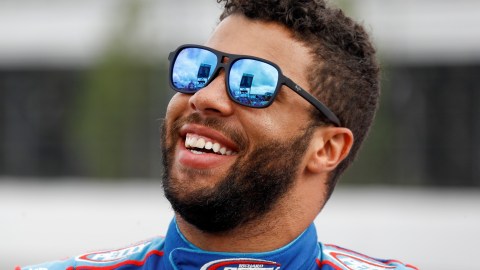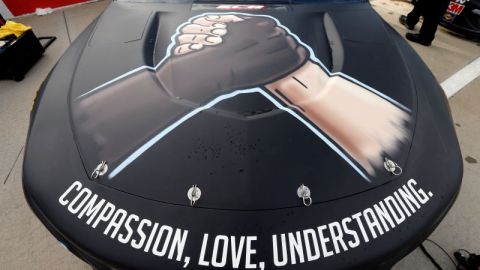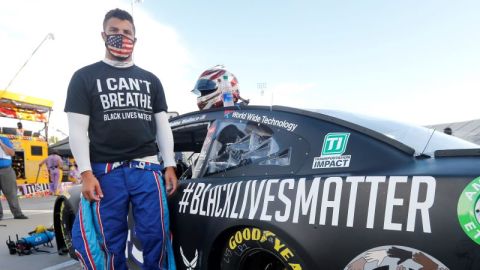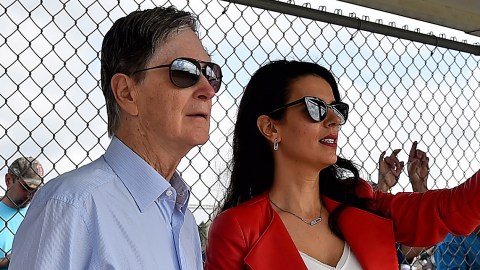Even now, more than a century after we started playing professionally sanctioned organized sports in Boston, it's still a common refrain whenever a new coach or front office guy is hired.
"What does he know about the game? He didn't even play!"
The fact that Bill Belichick has enjoyed loads of coaching success with the Patriots despite never playing Division I football often fails to resonate. Tony La Russa spent less than the equivalent of a full season in the major leagues, yet he's in position to possibly win his third World Series ring as a manager. Nick Saban, probably the top coach in college football, was a defensive back at Kent State, where he never won more than six games in a season as a player.
Yet many fans still equate "knowing the game" with "playing the game," regardless of the evidence that the two often have nothing to do with each other.
Albert Pujols' ill-advised call for a hit-and-run in Monday's game against the Texas Rangers was a perfect example. The St. Louis Cardinals slugger is the finest player in the game today and one of the best ever. If aliens descended from outer space and told us we could elect one person to face their extraterrestrial fireballer, with a home run meaning humanity's survival and an out meaning the annihilation of the human race, we'd all choose Albert. Anyone who didn't could safely be assumed to be a mole for the aliens.
But there were so many things wrong with Pujols' decision to reportedly call for a hit-and-run on his own that it's a wonder a veteran skipper like La Russa would even give Pujols such freedom.
First, the count, which was one ball, no strikes. Technically, that's a "hitter's count," meaning the pitcher wants to come back with a strike. But it's too early in the count to think the pitcher, Alexi Ogando, was going to throw a meatball to the other team's best hitter in a tie game.
Second, the situation. With a runner on base and the best hitter up, the focus should not be on avoiding a double play or getting a first-and-third situation. Next up is Matt Holliday, who is a very good hitter (and who singled after the Rangers intentionally walked Pujols), but whether you're the Rangers or a race of alien all-stars, you'd rather face Holliday swinging away than Pujols.
Third, the batter. We're talking about Albert freaking Pujols. The only signal Pujols should see in the postseason is the one that says, "Jack a bomb." If the manager or the base runner get an indication Pujols is thinking otherwise, they should pause the game and get Pujols a nice, soothing glass of ice water to help him come to his senses.
The best player in the universe called for the worst play in the universe, though. The result was predictably bad for the Cardinals. The next pitch was nowhere near the plate — up and away, essentially a pitchout — and a potentially big inning fizzled.
I'll never forget the conversation I had about the Tampa Two defense with a Division I college strong safety who started in a 46-type scheme. I thought he was kidding at first, maybe testing me, but he wasn't. He had been such a superior athlete in high school that he'd basically been a rover in an unimaginative man-to-man defense, and in college he was so involved in the minutia of being the hybrid linebacker/defensive back that his team's defense required, he was mostly unfamiliar with the defense being run at the time by the Buccaneers and Bears. His defense mixed in some Cover Two concepts, of course, so he was aware of its weaknesses and wasn't entirely sure how a team could get away with using it nearly full-time. (We also talked about the flexbone, which his team would see against Navy later that season. Like almost every major conference defensive player at the time, this player had never seen a triple option up close in his life, either.)
I never played in the Cover Two scheme (or any football defense, for that matter), but I had read about it, something this player didn't really have time to do between his football and class responsibilities. The quarterbacks on his own team probably understood the defense better than he did, from having to watch game film of other teams.
That's the unfortunate thing about great athletes; they have to be so focused on their few, precise tasks that their overall understanding of the game can suffer. The player-coach model may have worked decades ago, before there was video study and statistical analysis and offseason training programs that made the athletes superhuman. A star like Pujols today is so locked in on the pitcher, the count, the spin of the ball and his swing mechanics that game strategy likely doesn't have any space to operate, even in his sharp mind.
And it shouldn't have to. This isn't about saying Pujols doesn't know the game (his 445 career home runs and .328 career batting average might have something to say about that), but no player, not even one of Pujols' stature, needs the added responsibility of calling the shots, too.



